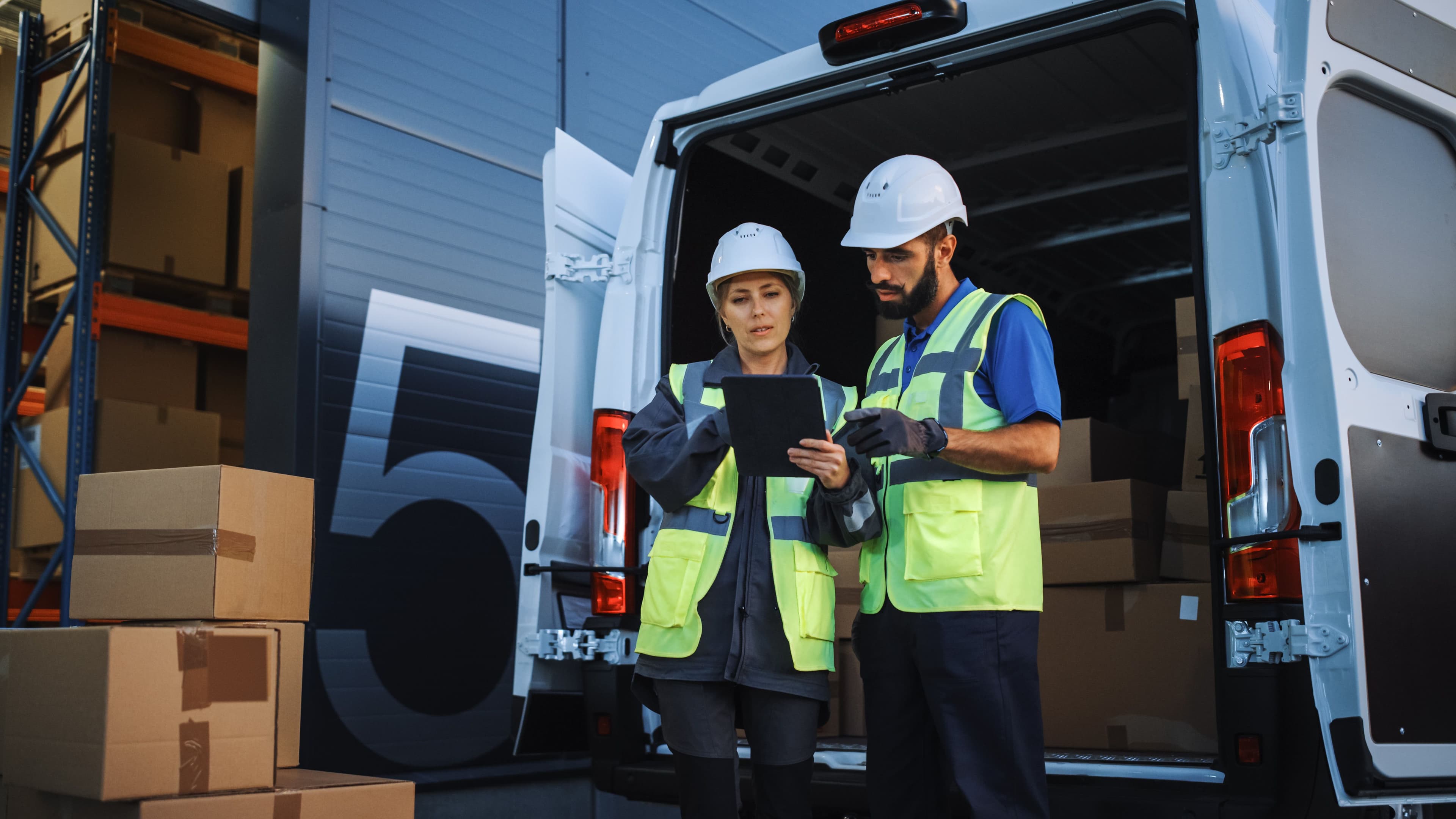- Home
- Telematics
- 3G shutdown
Navigating the 3G shutdown in New Zealand: The clock is ticking!

When is 3G being switched off and why?
As technology evolves, the need to upgrade and optimize networks for enhanced performance and capabilities becomes increasingly important. In New Zealand, the upcoming shutdown of 3G networks marks a pivotal transition towards more advanced technologies. Spark and Vodafone New Zealand have announced plans to discontinue their 3G services, with the shutdown scheduled by the end of March 2025. This significant shift in the telecommunications landscape will affect businesses dependent on telematics solutions, accelerating the demand for 4G telematics hardware to stay in line with these technological advancements.
3G networks in New Zealand utilize wideband code division multiple access (WCDMA) technology, utilizing the full cellular spectrum for data transmission. In contrast, 4G networks employ orthogonal frequency-division multiplexing (OFDM) technology, segregating the spectrum into smaller sub-bands for enhanced efficiency and speed. Radius Telematics' transition to 4G LTE technologies promises significantly faster data speeds and better connectivity, presenting an opportunity for businesses to optimize fleet performance and reduce costs associated with maintaining outdated networks.
Businesses in New Zealand are encouraged to assess their current devices and network dependencies to understand the impact of the 3G shutdown. Engaging with telecommunications providers for guidance on migration strategies and timelines is crucial to minimizing disruptions and optimizing new network capabilities.

Is your business ready for the 3G shutdown?
Make sure you're not impacted by the change by speaking to us today about your telematics needs so we can offer the best solutions to keep your fleet connected.
Contact us

Impact of the 3G shutdown on fleet management
As New Zealand prepares to phase out 3G networks in favour of faster and more efficient 4G technologies, businesses relying on telematics services face significant challenges. This transition will affect a wide range of devices beyond smartphones, including vehicle telematics, security systems, and various IoT devices that rely on 3G connectivity for data transmission.
Key challenges:
-
Data delays and tracking disruptions: The shutdown could lead to interruptions in real-time data transmission and tracking capabilities, impacting fleet management efficiency.
-
Operational inefficiencies: Outdated 3G technology may result in increased maintenance costs and downtime, affecting overall operational productivity.
-
Regulatory compliance: Non-compliance with regulatory mandates, such as Electronic Logging Device (ELD) requirements, poses financial risks and operational disruptions due to the phase-out of 3G support.
Business Imperatives: To mitigate these challenges and ensure continuity, businesses must swiftly transition to modern hardware compatible with 4G LTE or NB-IoT technologies. This upgrade not only maintains uninterrupted connectivity but also prepares operations for future network advancements, enhancing overall efficiency and compliance with evolving regulations.
Proactive planning: It's crucial for businesses to proactively plan and execute their transition to modern telematics solutions. This includes assessing current devices, understanding migration timelines provided by telecommunications providers, and implementing necessary upgrades promptly. By prioritizing timely action and embracing advanced telematics technology, businesses can navigate the 3G network phase-out effectively, ensuring seamless operations and regulatory compliance in New Zealand's evolving telecommunications landscape.

Benefits of 4G hardware
Extended wireless network coverage
Enhanced connectivity for fleet tracking.
Higher bandwidth and data speeds
Faster data transmission rates for real time monitoring.
Low latency
Minimal delay in data transfer for instant updates.
Wider range of coverage
Broader geographic reach for tracking remote assets.
Improved network reliability
Enhanced service reliability for uninterrupted tracking.
Greater compatibility with cellular tech
Seamless integration with advanced telematics technology.
Prepare your business
Assessing your fleet inventory
Before embarking on the transition, it's crucial to conduct a thorough assessment of your fleet's existing inventory of telematics devices. This involves compiling a comprehensive list of all the devices currently in use, including GPS trackers, dash cams, that rely on 3G connectivity. This inventory will serve as the foundation for planning the upgrade process and identifying which devices need to be replaced. At Radius, our team can help you with our vast range of products, to match the compatibility of the device.

Prepare your business
Finding the right provider
Fleet managers should explore the offerings of various telecommunications providers to determine the best options for transitioning to 4G services. Try considering factors such as network coverage, data plans, and compatibility with your fleet's devices. Get a free quote from Radius for your upgrade options or provides guidance on transitioning to newer technologies.

Prepare your business
A detailed roadmap
With an understanding of your fleet inventory and telecommunications options, it's time to develop a comprehensive transition plan. This plan should outline the entire process from start to finish, including timelines, responsibilities, and contingency plans. Calculate the time required for installers to replace 3G devices in each vehicle, considering factors such as installation time per vehicle and the total number of vehicles in your fleet. A clear and structured plan will ensure a smooth and efficient transition. Here at Radius, we have our dedicated installers all across New Zealand; we can arrange and timeline your Installations.

Prepare your business
Communication and training
Effective communication and training are essential components of a successful transition away from 3G technology. Hold team meetings with all relevant stakeholders to communicate the upcoming changes, reasons behind the transition, and benefits of upgrading to 4G or 5G technologies. Provide comprehensive training sessions to familiarize your team with the operation of new devices and any updated fleet software or applications. At Radius, we offer personal account managers who will work closely to ensure a smooth transition to advanced telematics solutions and schedule training sessions as well.

Frequently asked questions
Can’t find an answer to your question? Talk to the Radius customer support team on 0508 472 3487. We’re here to help you with any questions or concerns you may have.
When is Spark shutting off 3G?
What will happen to old devices after the 3G shutdown?
How can I upgrade my telematics device from 3G to 4G?
Partnership
Why choose Radius?
With innovative solutions built around the needs of our customers, we've established an international reputation for helping businesses grow sustainably.
Expertise
Our team has over 34 years of experience helping more than 400,000 customers globally.
Trust
We are an internationally-acclaimed provider with numerous awards for our products and services.
Choice
Choose from our range of fleet solutions that can be tailored to suit your needs.
Solutions
Use our award-winning technology and services to save your business time and money.



Need help?
Can’t find what you are looking for?
The customer support team at Radius has a global reach with over 50 offices to offer local contact with an international presence. Let us know how we can help.
Contact us
